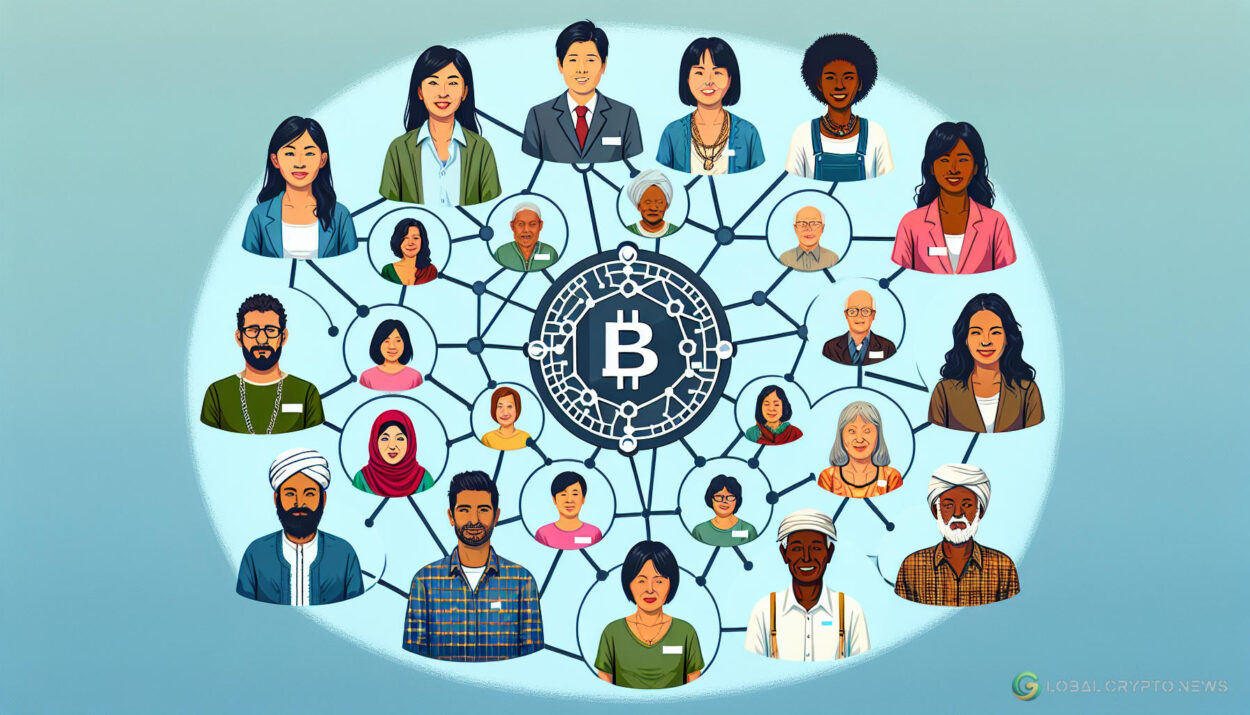Disclosure: The views and opinions expressed here belong solely to the author and do not represent the views and opinions of Global Crypto News.
Traditional finance has produced benefits like near-instant payments and intuitive mobile apps. However, its centralized structures have created significant financial inequalities across geographical and cultural lines. Approximately one percent of the world’s population owns over $87 trillion in financial assets, which accounts for over 43% of the total global financial wealth. More than 63% of their wealth is in financial assets compared to 37% for the majority.
Blockchain Technology for Financial Inclusion
Blockchain can address these issues. The ethos of decentralized wealth-generation protocols and financial networks is grassroots inclusion. However, we must ensure that this promise is realized, especially as legacy financial institutions enter the space with centralized products and ETFs.
Institutional Impact on Crypto
Exchange-traded funds (ETFs) have played a significant role in bringing optimism to the crypto market. Exposure to blockchain-based digital assets through familiar instruments could encourage mainstream adoption. However, this should not come at the expense of inclusivity.
In the traditional financial system, one needs $2 to $5 million in investable assets to access wealth management firms in the US. Large fund managers like Blackrock exclusively serve high-net-worth individuals with portfolios above $100 million. This exclusivity is unlikely to change simply by offering crypto-related products.
The roots of exclusion in traditional finance are deep and systemic, making it challenging to fix. For example, the STOCK Act has failed to prevent insider trading among US Congress members due to the complexities of defining ‘material information’.
“Blockchain technology offers unique capabilities to provide equal access for all while supporting fairness natively.”
Wealth and Financial Freedom for All
Blockchain is a powerful tool for wealth and access equalization, bringing new revenue streams and investment opportunities directly to users. As noted by Mike Mallazo:
“The real egalitarian appeal to crypto is not that it will democratize payments—but that a wintergreen ZYN-fueled degenerate in his mom’s basement can outperform an MIT-trained quant who spent a decade at Goldman.”
Currently, grassroots users are generating significant wealth through memecoins and other blockchain-based assets. For example, a trader recently turned $2,275 into $2.6 million in about eight hours. This is possible due to low entry barriers and the absence of gatekeepers.
Unlike traditional financial systems, blockchain-powered networks offer fair opportunities for all users. Advanced wealth-generation protocols allow average users to invest alongside top asset managers, creating a meritocratic environment.
The emerging social investing paradigm benefits both seasoned investors and amateurs. The former can monetize their strategies, while the latter gains a stress-free means to profit.
Accessible wealth management systems that support a wide range of asset classes, including meme coins, DeFi, NFTs, and RWAs, will further democratize the financial space. This will unlock opportunities previously reserved for the wealthy elite.
Everyone, regardless of their background, can achieve financial freedom using blockchain-powered tools. Users are the biggest winners in this shift, epitomizing fairness.
To fully leverage the benefits of institutional participation, robust blockchain-native infrastructure is essential. Decentralized, community-oriented systems must be strong to offset any potential negative impacts of widespread institutional adoption.
In the battle of narratives and perceptions, crypto’s core voice must be louder than those trying to misuse the technology for selfish gains. While ETFs can bring new users, native protocols and their communities must set the standards. We must avoid repeating the historic mistake of exclusion.
Encourage your curiosity and stay informed with more updates on Global Crypto News.
Abdul Rafay Gadit is the co-founder of Zignaly.com, dedicated to building ZIGChain, Zignaly’s Layer-1 blockchain. He aims to unlock wealth-generation opportunities for everyone by providing infrastructure for developers to build protocols accessible to fund managers and retail investors alike.
























